As early as June, I got an assignment to work on project for an African country. Since then, I'd been working like crazy to meet the deadline I was given. After months of hard work, this project had finally reached its final stage, and we were asked to go to Sudan to provide on-the-spot technical assistance.
On August 16th, my colleague Joe and I were landed at the Khartoum International Airport. It's such a small airport that it only took us a few minutes from where our plane landed to the terminal building. (I've been to some other airports in Middle East, it usually takes us more than 20 minutes.) And I heard that this was the country's largest airport.
When we arrived at Rotana Hotel, we were amazed by its glamor and luxury. This was one of two five star hotels in capital Khartoum. It has anything we want: a gym, a large backyard with well-groomed trees and lawns, and a swimming pool. But living here came with a big price -- we'd to pay over 200 US dollars a day.
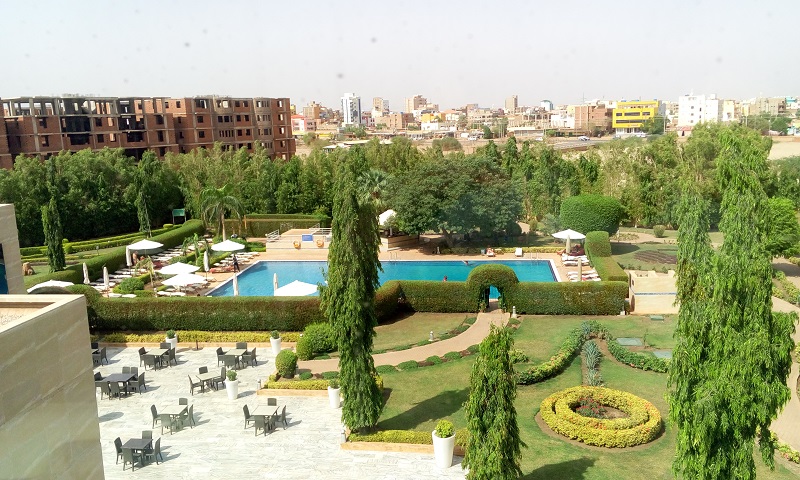
The backyard of our hotel.
Donkeys Are Everywhere
The next day, our customer Mohamed arrived at our hotel to pick us up. On our way to his office, a donkey-drawn two-wheeled cart appeared in front of us coming from nowhere. Mohamed told us that this cart was commonly used to deliver fresh milk to households and this kind of transportation was common in his country. He was clearly shocked when I told him, I've never seen donkeys before in China. Days later, when Mohamed pointed at a donkey by the roadside to bring my attention, I told him, “I’ve seen enough donkeys.”
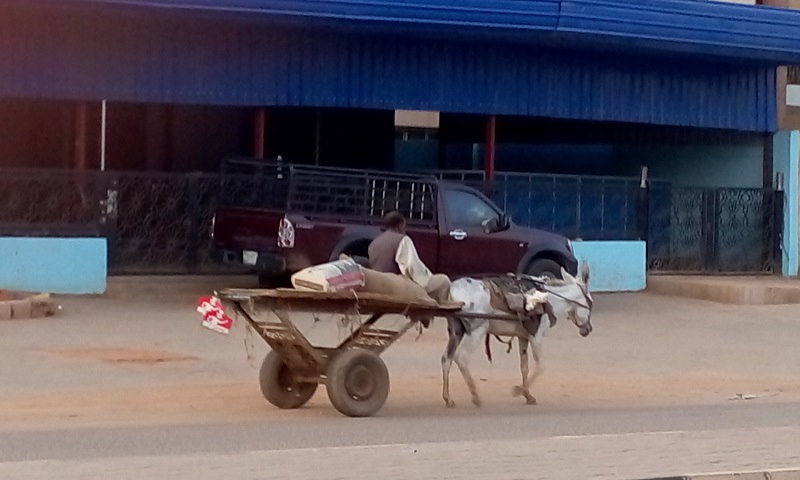
Donkeys were seen everywhere, as the power for a basic means of transportation.
A Visit to International Park
On a sunny Wednesday, since Mohamed didn't come to our hotel, we stayed in our hotel the whole morning. In the afternoon, as I got a bit bored, I searched on Google Map to see if there's some interesting place nearby. On the map, I saw there's an International Park just across the Africa Road in front of our hotel. I was curious about what park looks like in this country, so I ventured out on an adventure.
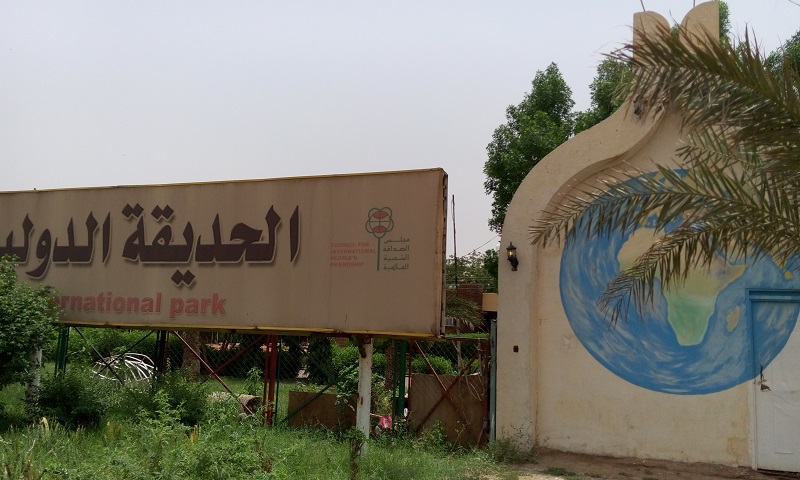
The main gate of the International Park.
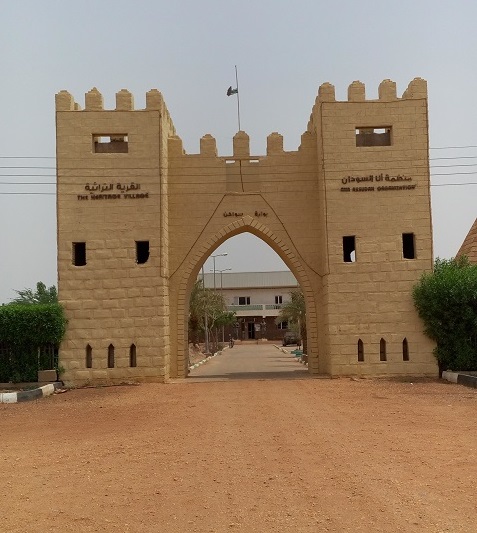
The Heritage Village in the park.
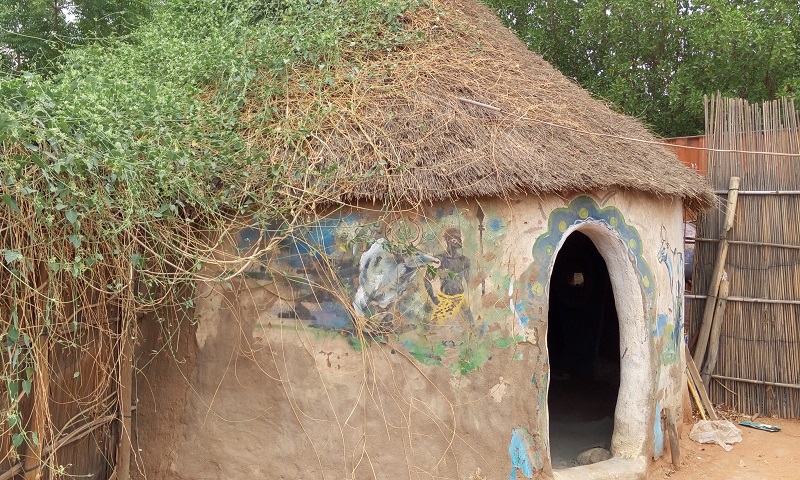
Traditional adobe dwelling in Heritage Village.
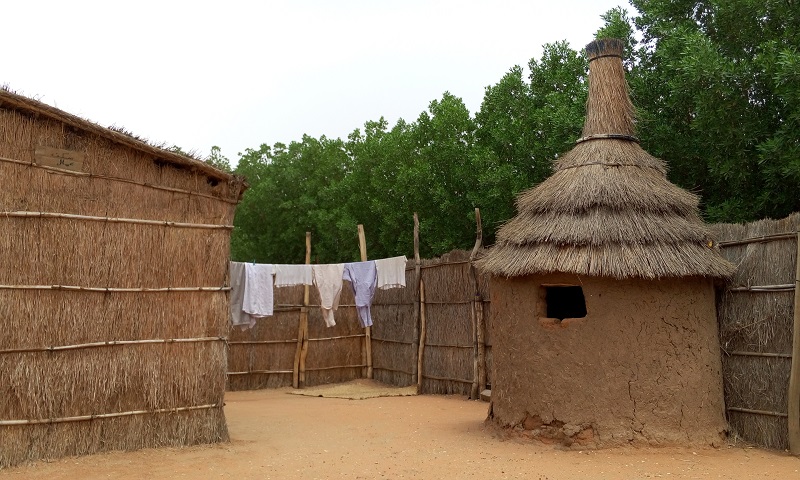
Traditional dwellings made of mud and straw.
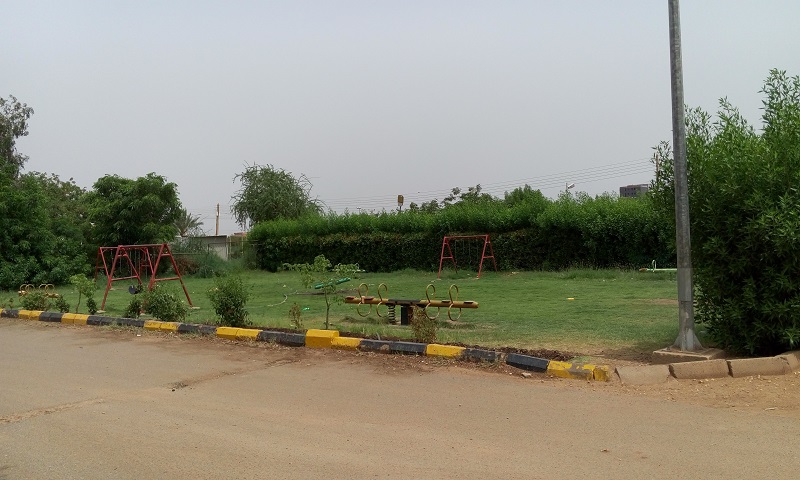
Fitness equipment seen in the park.
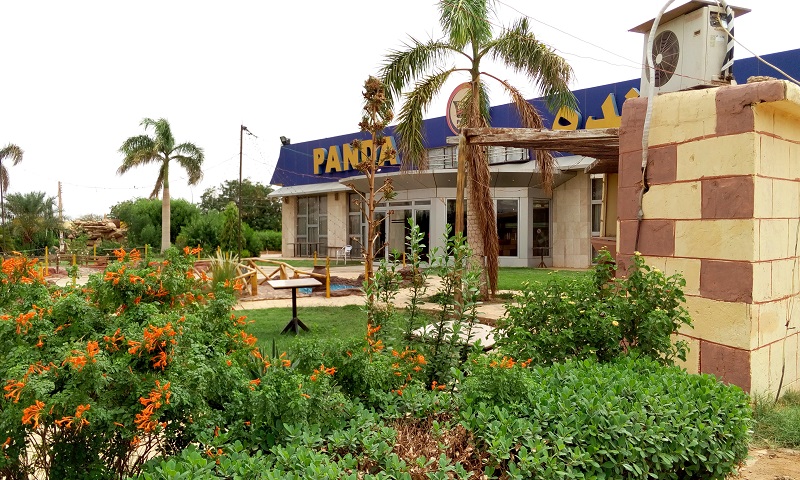
A Chinese restaurant near the park.
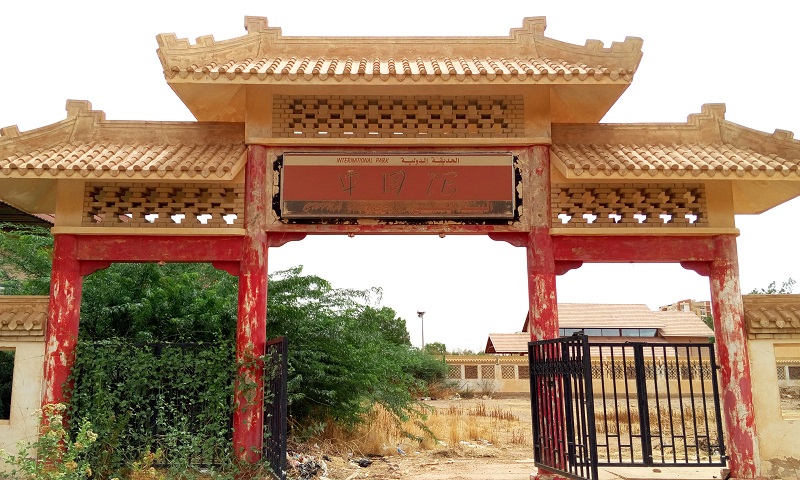
China House in the park. It’s desolated and abandoned. Litters and grass could be seen from everywhere. I was intrigued and wanted to know what happened to this place, but failed to find the answer on Google.
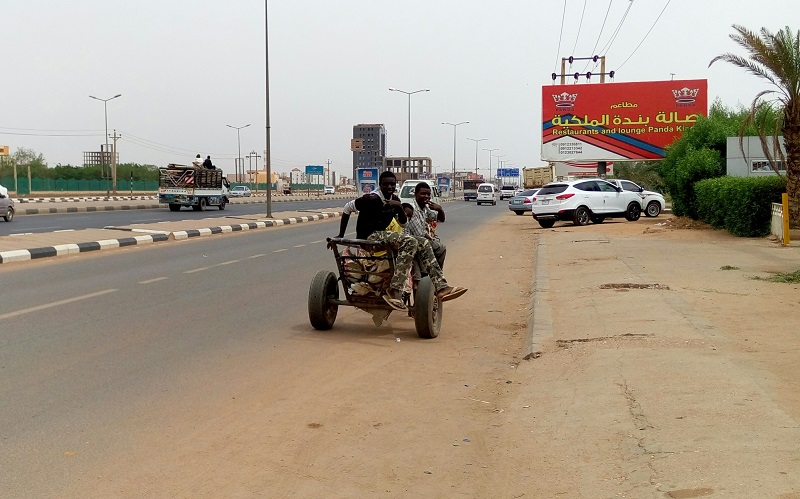
When I was returning back to my hotel, I saw yet another donkey-drawn cart loaded with three boys. The moment I took out my cellphone to shoot a photo of them, the tallest boy jumped off the vehicle and attempted to give me a kick. But his foot was a half-meter short of touching me, he then quickly returned to his seat, laughing with this fellas. I was really scared, but as they moved further away from me, I was thinking: maybe he means no harm, just wanting to show off his kung fu.
Power Shortage
One night, when I was doing my work in Mohamed’s office, the lights were suddenly went off and my laptop was shut down (the battery on my laptop was unusable). There was a short silence in the room, then Nabil said, “Welcome to Africa!” We all burst into laughter. I later learned that power outage was very common here even though we were in the capital of this country.
Tuk-tuk -- Local Taxi
We usually didn’t have lunch, because we didn’t like local food. So, when darkness fell, we would usually take a cab to a Chinese restaurant, which was affiliated to a Chinese hotel called Nantian International Hotel. We realized that we couldn’t find a sedan car as a taxi, tuk-tuk car was the only means of transportation for us.
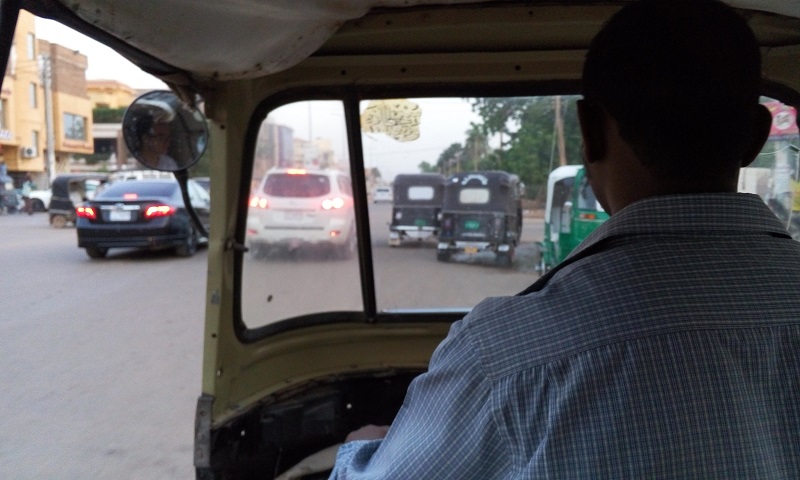
A tuk-tuk car was taking us to our hotel.
This kind of car was literarily anywhere. It could be stopped by a simple wave of your hand in the air. The fares were not charged by meters, so we’d to ask the price before we get on. The local language is Arabic, so we often ran into difficulties when talking with the drivers. Oftentimes, when they were asked the price for our trip, they would reply us in Arabic, and we would asked them to speak English. Still, they would speak Arabic. As we were stuck in this situation, my colleague Joe came up with a brilliant idea. He took out his cellphone and gestured the driver to input the price on his phone. Would the driver input a number that’s too high, we would change the number to a smaller one for a bargain. The haggling would continue for a few rounds until both of us nod our heads. Because of the language barrier, it’s no surprise that drivers would sometime misunderstood us. One particular evening, we told the driver we want to go to Nantian Hotel, the driver was confused and muttered something in Arabic. Joe then told him it’s a Chinese restaurant. He seemed confused no more and indicated us to get on his car. Before we got on, we asked the price. He told us “ten”. We then jumped on, happy with the fare, as this trip would usually cost us 15 – 20 Sudan pounds. Soon, we sensed something wrong – the streets were not familiar to us. When we asked the driver why he took this route, he replied in Arabic. We felt helpless and were feared that something worse would come. Minutes later, he stopped his car in front of a restaurant called Great Wall Restaurant. It’s indeed a Chinese restaurant, but not what we were looking for. We told him that’s not the place we wanted to go, and we told him one more time that Nantian Hotel was the place we wanted. He seemed to know our place now, as he started his car again. A few minutes, he pulled over in front of another Chinese restaurant. Again, it’s not we wanted. We were angry and helpless, we wanted to get off but we were in a small alley and no other tuk-tuks were in sight. The diver seemed to take us from one Chinese restaurant to another, until we find the one we wanted. Not to repeat the same mistake, Joe took out the business card of the owner of the Nantian Hotel and showed the driver the address of the hotel. When the driver seemed confused by the address written in English, we asked a local seating at the doorsteps of a shop nearby for help. We showed the address to that local and said we wanted to go there. He seemed to know that place and told something to our driver in Arabic. Our driver nodded his head and seemed to know how to get to our hotel now. As he started his car again, we told ourselves, we had to trust this guy one more time. Finally, when we were dropped outside Nantian hotel, we felt a huge sense of relief. We just wanted to have a dinner, and what a roller-coaster ride.
City After Rainfall
Mohamed once told us it’s the rain season of their city, but we didn’t see any rainfall during the first week of our stay. In week 2, when the rain finally came, we found the roads were inundated with water. After a rainy night, Mohamed sent his colleague Osama to take us to his office. On the way, we saw large pools on the road one after another. The pools would stay there days after the rainfall due to the absence of drainage system. Nabil (Mohamed’s colleague) once joked with me: sun is their best drainage system, as it will evaporate the water in pools.
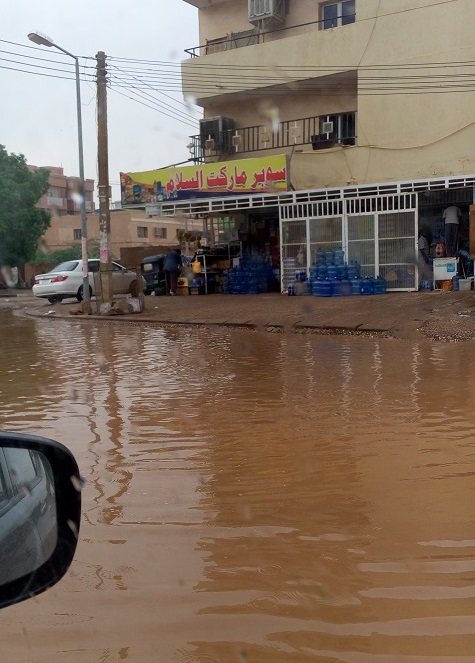
A large pool of water was seen on the road after rainfall.
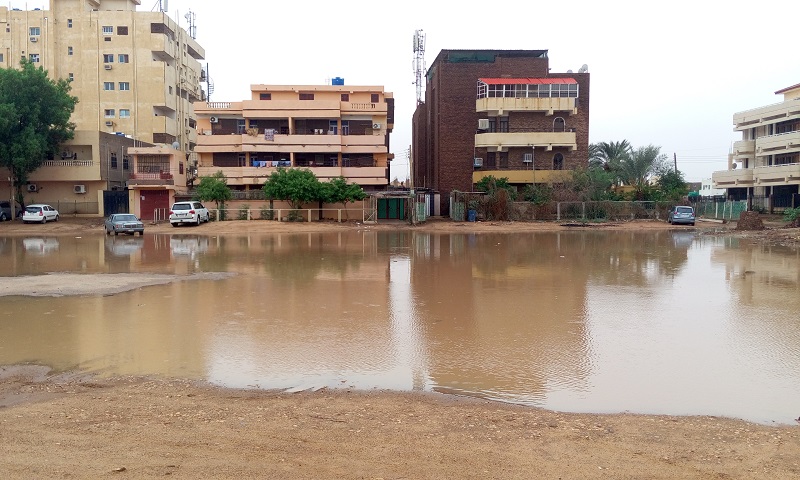
A pool was formed near Mohamed’s office.
Street Kids
Every time we were on the road, we would see a group of kids. They moved along with the traffic, with some of them held some goods in their hands – they were the moving salespeople; some without anything in their hand, would take any chance to approach a stopped car and extend their bare hands to people sitting in the car. Seemed that large proportion of children in this country were not attending schools and they’d got much urgent thing to deal with – hunger.
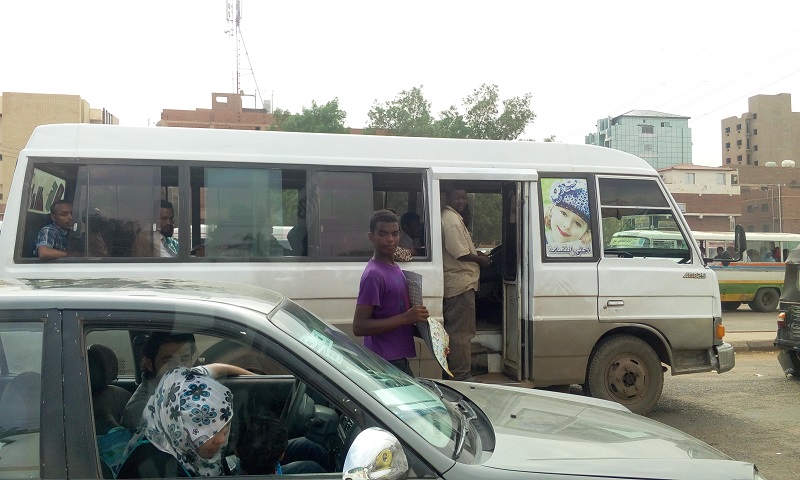
A street boy was selling goods on the road.
Farewell
On last day of our stay there, Mohamed took time out of his busy schedule, and took us to a tourist attraction – Sudan National Museum, where we were introduced to the culture relics and learned a bit history of their country. He then treated us with a feast. After the lunch, Mohamed took us to the airport. Near the airport, Nahid (Mohamed’s sister) met us and presented each of us a piece of gold jewelry as a token of gratitude for what we’ve done to this project. Joe and I were overwhelmed with emotions and words failed to describe how grateful we were for their hospitality and gifts.
I knew deep down that, there’s something worth more than gold – the way they treated us and the bond between us.
The donkey-cart is so interesting. In China, there are donkeys in some rural areas for transporting farmers or the crops when the harvest season comes. But with the growing economy, in recent years donkeys are rare in rural areas and machines are popular instead. In my hometown Shandong province, there is a city named Liaocheng full of donkey products-gelatin, and almost every villiage cultivate donkeys just for making gelatin.
Thanks for sharing your opinion here. We have highlighted your blog.
Very excellent article,Compare with those contries, our homeland is very beautiful.
I guess you had a golden experience......no photos from the museum?







Comment